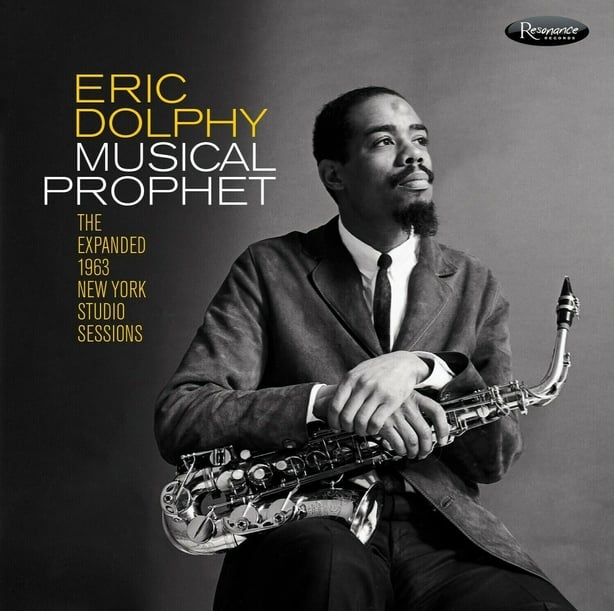Eric Dolphy's legacy thrives 54 years after his early death and there is no better introduction than this 3-CD set, which reissues two key studio albums, along with seven unreleased tracks.
Dolphy, who was born in LA of Caribbean descent, died in a Berlin hospital in 1964 at the tender age of 36, having suffered from untreated diabetes. A controversial figure, who pushed the boundaries of music-making, the visionary composer’s music was actually derided for what one narrow-minded critic dubbed as `anti-jazz.’
Posterity is not much use to anyone but, that being the case, Dolphy’s stature has nevertheless grown in the decades since his passing. His scores are stored in the US Library of Congress for the benefit of musicians and scholars. If not spoken of in quite in the same terms as Thelonious Monk, Miles Davis or Charles Mingus, the conversation about him is certainly in the ballpark of that particular Hall of Fame.
He was a catalyst for greatness in the musicians he surrounded himself with, and an inspirational figure for others who enthusiastically followed him into a kind of musical labyrinth. Richard Davis was his constant comrade and if his intrepid bass sounds familiar, yet different somehow from the perhaps more measured sound of other bass players, it may be because you have heard Van Morrison’s Astral Weeks.
Richard Davis, a key contributor here, was one of the bass players on the sessions for Van's sleeper album. Listen to the two takes here of his remarkable tone poem, Muses for Richard Davis - the last tracks from the first CD, comprising the Conversations album - with Dolphy on a solemnly ruminative clarinet. 17 minutes of reflective moodiness, if you combine both takes, which draw the listener along inexorably. That's the finish of the record while the album begins with a leisurely reading of Fats Waller's Jitterbug Waltz, with Dolphy on flute and Hutcherson's vibes warm and subtle by turns.

Trumpeter Woody Shaw, vibes specialist Bobby Hutcherson and soprano saxophonist Clifford Jordan are among the better-known names featuring on the list of guest players. CD two is a reissue of Iron Man, while the third CD gathers seven previously unreleased studio recordings, including a number of alternate takes.
After all that, it has to be said that Dolphy had a difficult life, bedeviled by poverty and ill-health and what Robin DG Kelley describes in an essay included here as `a general assault on his creative spirit.’ Yet the young player was encouraged by parents who converted the family garage into a rehearsal room, where the dedicated apprentice put in the hours to become a versatile virtuoso on alto sax, flute and later, bass clarinet.
Like many jazz legends, Eric spent many years as a sideman, playing alongside Roy Porter, Chico Hamilton and the aforementioned Charlie Mingus. In terms of his status as band leader, 1960 was a fruitful year, resulting in no less than three studio albums, while all the music here was recorded in 1963, the year before he died.
Not long before he passed away, the musician explained his decision to emigrate to Europe, "because I can get more work there playing my music, and because if you try to do anything different in this country, people put you down for it." He also told a German jazz critic that "there was no race problem" in Germany.
John Coltrane saw the burgeoning talent for innovation in his fellow player. "Eric is really gifted and I feel he's going to produce something inspired, but although we've been talking about music for years, I don't know where he's going and I don't know where I'm going. He's interested in trying to progress, however, and so am I, so we have quite a bit in common."














